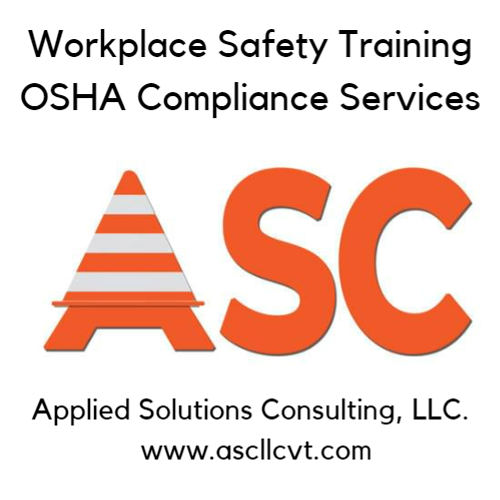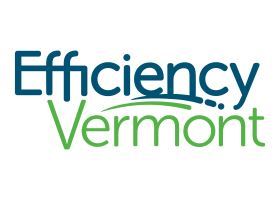- Home
- Committees
- Legislative Committee
- 2023 Legislative Priorities from Andrew Brewer
VBRA Legislative Priorities – 2023
Residential Contractor Registry
Vermont’s Residential Contractor Registry become law on July 1, 2022. The Office of Professional Regulation is charged with rolling out the registry, which is now live with an “early bird” special. Registration will be required as of April 1, 2023.
VBRA Past-President Jim Bradley has been named to an advisory committee to assist OPR with the details of the registry’s launch. Some details are still being worked on, including a program to promote certifications earned by contractors.
The goal of the VBRA is for the registry to become the foundation for education, training and further professional development of the building trades.
Building Energy Standards Updates
The Public Service Department has begun the next update to the Residential Building Energy Standards (RBES) and Commercial Building Energy Standards (CBES). Vermont statutes require that revisions be made promptly after the issuance of updated standards from the International Energy Conservation Code (IECC).
Public hearings and comment period have been held with many VBRA members participating in the comment process. The PSD will now make final rule recommendations to the Legislative Committee on Administrative Rules (LCAR) for consideration and final adoption. The target effective date for the new rules is fall or winter of 2023.
While there is no new legislation per se to react to, VBRA will continue to advocate in front of LCAR for sensible changes to the energy building code.
Housing & Local Permit Reform
With the focus still on improving Vermont’s housing stock, a highly anticipated bill aimed at reducing permitting barriers in areas that already have adequate infrastructure (water and sewer) is expected to be introduced early in the session. Amongst many other provisions, expect language that prohibits single-family only zoning - where there is water and sewer duplex’s and multi-plex’s must also be allowed.
Also in the anticipated bill - An end to duplicative state and municipal permit for municipal water/sewer connections, and the inclusion of “By-Right” zoning language - projects that comply with the zoning standards receive their approval “By-Right” without a discretionary review process.
This will be an important bill to track and provide advocacy on. Architects of the bill are going to great lengths to avoid bringing Act 250 into the discussion, as it tends to derail meaningful efforts. The intent is to concentrate on increasing density in already developed areas.
Act 250
Every indication is that there won’t be any big effort on Act 250 modernization this year. The permitting emphasis will be around the housing bill, and comprehensive Act 250 reform will be tackled in 2024.
In addition, there are several studies that are due a year from now: One report will look at Act 250 jurisdiction over agricultural businesses. Another will look at how to transition Act 250 jurisdiction to location-based triggers. A third study will examine the states Downtowns, Village Centers, New Town Centers, Growth Centers and Neighborhood Development Area Designation Programs, and finally, an overall assessment of the Natural Resources Board in general. These impending studies give lawmakers cover to not tackle any major legislation this year.
There are two camps of thought to overhauling the NRB – The Governor would like to transition the NRB to a board of professionals who automatically hear all major cases (instead of district commissions), providing consistency in decisions. Whereas environmental advocates and many legislators desire to revert the NRB back to the original Environmental Review Board of lay persons who would hear appeals instead of the Superior Court.
Other major pieces of legislation that could affect businesses:
Early Child Care Subsidies
By some estimates, 5,000-10,000 Vermont parents would be able to return to the workforce if they had access to quality and affordable child care. Legislation is expected that every child have access to child care, that families spend no more than 10% of their income on child care, and where early childhood educators are fairly compensated and supported.
The Legislature has commissioned a report by the RAND Corporation that will focus on the costs of potential changes to the child care system. Pre-report estimates have ranged between $250 million and $400 million a year, and a payroll tax will likely be suggested as a funding mechanism.
Universal Paid Family and Medical Leave
Universal Paid Family and Medical Leave (PFL) would likely provide up to 12 weeks of leave covering new parents, people caring for sick loved ones, and survivors of sexual and domestic assault. The proposal would cover full-time, part-time, and seasonal workers by replacing lost wages with what lawmakers deem a living wage.
There have been no decisions yet on a funding mechanism, but a PFL plan vetoed by Governor Scott three years ago would have assessed a payroll tax on all Vermont workers and employers.
Climate Change Initiatives
Tackling climate change is expected to be a top priority for Democratic leaders. Democrats last year failed to override Governor Phil Scott’s veto of a thermal energy bill targeting fossil fuels. Now, with a new larger majority, lawmakers plan to bring the measure back.
Last year’s “Clean Heat Standard” measure will be re-introduced in the first week of the session as the Affordable Heat Act. The bill - paired with other incentives - would let businesses, fuel dealers, and others earn so-called clean heat credits for helping customers weatherize their homes or switch to eco-friendly heating sources like cold air heat pumps. It would then essentially increase prices for fuel dealers and their customers over time if they continue to heat with fossil fuels including propane, kerosene, and heating oil.
Workforce Development
We can expect more legislation related to workforce development, which really means working hand-in-hand with housing development.
Last year the legislature and governor appropriated millions in continuing education funds targeting CTE programs highlighting the value of trades careers. These appropriations are expected to come online in 2023.
Other labor-related legislation
VBRA will stay attentive to discussions around minimum wage, unemployment, workers comp, and worker misclassification.
Possible Other
Statute of Repose. Vermont does not have a repose statute in place to protect contractors and design professionals. Designers and constructors of buildings and other property improvements are exposed to life-long liability for their professional and business activities, unlike practitioners of other professions and businesses. Statutes of Repose bar legal actions after a specified period of time (6-10 years, for example) from the occurrence of a fixed event, limiting the time during which contractors and design professionals are exposed to liability. Vermont is one of only a few states that has not enacted this fair public policy.
VBRA is interested in hearing your thoughts on these legislative issues, and any others that may have an impact on your profession.
Please Support our Annual Association Sponsors! |
VBRA Annual Sponsors Silver Sponsors
Bronze Sponsors
Marketing Sponsor
|










